
UvA Education Day 2025: The Academic Compass
Academic education goes beyond knowledge transfer; we train students to become critical thinkers, ambitious researchers and engaged citizens.
UvA’s Education Day on 28 October invites us to reflect on how we navigate a complex and changing world as educators and members of our university. What compass helps us orient our work, our relationships, and our shared future in academia?
Registration for the UvA Education Day 2025 is now closed.
UvA Education Day
When: 28 October 2025
For: everyone with a passion for education
What time: 11.30 – 16.45
Where: Aula, Lutherse Kerk (Singel 411)
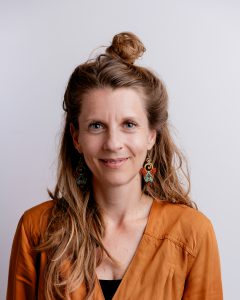 Plenary session: Navigating with an Academic Compass
Plenary session: Navigating with an Academic Compass
The day will open not with a traditional keynote, but rather with a short lifenote, in which Dr Mieke Lopes Cardozo anchors the theme of the Academic Compass in lived experiences through storytelling. As Associate Professor in Regenerative Education and Development Mieke invites us to explore the interconnected paths of regenerative educatorship, through the inner, communal, and whole-system paths of learning. From there, we’ll gather around a campfire conversation on stage facilitated by Regenerative educator, action researcher and writer Dr Koen Wessels, inviting multiple voices from members of our academic community to hear new perspectives. Embracing the full range of experiences and viewpoints present. In this campfire conversation, the following participants will join:
- Lyuba Nicheva, research master’s student Child Development and Education
- Roshn Najmeddin, junior lecturer Human Geography, Planning and International Development
- Farid Boussaid, associate professor of Middle Eastern politics at the Department of Political Science, director of the Amsterdam Centre of Middle Eastern Studies (ACMES), awarded an UvA Education Award 2024, category Student Activating Teaching
- Nithya Subramanian, support staff, Finance & HR administrator at the Central Teaching and Learning Centre, co-organiser of the Special Interest Group Fair Resilient Inclusive Societies
- Christa Boer, dean of the UvA Faculty of Social and Behavioural Sciences (FMG)
These conversations will later ripple outward into smaller campfire sessions, where everyone can engage in dialogue revolving around UvA’s educational vision, in a more intimate setting.
At the end of the day, after the workshops, we’ll return together for a reflective and activating plenary with Mieke Lopes Cardozo as inquiry host, weaving the threads of what has emerged.
Staying on course in a changing world: a new educational vision
Political, social, and technological developments have a direct impact on education. To prepare students for this complex and dynamic world, the University of Amsterdam launched the project ‘Towards a New Educational Vision’, which will be rolled out in the academic year 2026-2027. In this process, we have embarked on a collective quest for a future direction that aligns with our values and vision on education. Join in on 10 campfire discussions to explore whether the formulated educational themes meet the educational practice. And let us gather key considerations to further refine our academic compass. The themes consist of f.e. Healthy learning environment, Self-directed learning and Academic Citizenship.
Challenge your thinking in the group sessions
Sign up for one of 11 in-depth sessions led by colleagues from across the UvA. This year’s themes include transformative learning skills, collaborative competences, as well as future-proof curricula and inclusive assessment.
Awards for lecturers and students
Good and inspiring education is of great importance to the UvA. That is why we present the UvA Education Awards to exceptional lecturers and courses, education projects or -teams that contribute to this. In addition, the best and most original Master’s theses written at the UvA are rewarded each year with the UvA Thesis Prize. The jury judges the submissions by scientific quality and originality. At the Education Day you can attend a panel discussion with the faculty winners and research journalist and writer Simone Peek.
Will you join us on 28 October?
Let yourself be inspired by campfire circles of conversation, guided by the Academic Compass and the interconnected paths of regenerative educationSign up for thought-provoking group sessions or panel discussions with Thesis prize winners from across all UvA faculties. And enjoy a day of sharing, exploring, and deepening your vision of education. 🌱
Registration for the UvA Education Day 2025 is now closed.
Programme
- 11:30 – Walk-in with brunch
- 12:00 – Opening of the UvA Education Day by Dr Mieke Lopes Cardozo
- 12:10 – Presentation of the UvA Education Awards and the UvA Thesis Prize
- 12:30 – Navigating with an Academic Compass by Dr Mieke Lopes Cardozo, including an interdisciplinary campfire discussion on stage, facilitated by Regenerative Educator Dr Koen Wessels.
- 13:15 – Coffee break
- 13:30 – Interdisciplinary campfire discussions centred around UvA’s educational vision or Panel discussion with UvA Thesis Prize faculty winners and research journalist and writer Simone Peek
- 14:15 – Coffee break
- 14:30 – A choice of 11 in-depth workshop sessions
- 16:00 – Coffee break
- 16:15 – Plenary closing
- 16:45 – Drinks
Sign up for the group sessions
Discover how improvisation can transform your teaching practice. In this hands-on workshop, you’ll use theatre-based exercises to develop adaptability, active listening, and collaboration, essential skills for both students and lecturers in a rapidly changing world. By adopting a “yes, and” mindset, you’ll foster a classroom culture of openness, resilience, and social awareness. The playful structure invites reflection on your own teaching in a safe and energizing environment. Improv techniques help build student confidence and agency, encouraging them to take ownership of their learning and contribute meaningfully in diverse contexts.
By:
 |
Alejandro Martin-Gonzalez is science communicator and researcher with a background in biophysics and improv. He connects research, education, and creativity in his work. |
How do we prepare students for futures we cannot predict? In this 90-minute session, participants will explore design fiction as an academic compass – a creative method that uses artifacts, stories, and prototypes from possible futures to reflect on the present. Instead of forecasting what education will be, design fiction invites us to ask “what if…?” and to make futures tangible through playful yet critical exploration.
Working in small groups, participants will design and share speculative classroom and use them to spark debate about values, systems, and possibilities. Participants will leave equipped with a toolkit to foster imagination, critical thinking, and agency in the classroom.
By:
 |
Lucia Collará is a product leader and lecturer based in the Netherlands. She is currently Product Lead for the University Library (Uva | HvA) within the Digital Infrastructure team. With a background in commercial product leadership, she enjoys helping teams grow, mentoring young professionals, and making sure product work creates real impact. |
Student teamwork often lacks guidance, leaving collaboration ineffective or invisible. This workshop introduces a practical method using four roles—task, process, relationship, and communication manager—to help students reflect on and improve how they work together. You’ll gain new insight into group dynamics and explore how to support students in building more effective, structured, and equitable team interactions within your course.
By:
 |
Roosmarijn van Woerden has an interdisciplinary background in philosophy, political science, religious studies, and educational sciences. Her research focuses on student collaboration in multidisciplinary teams working on interdisciplinary tasks. In her current position at Interdisciplinary Social Science, she designs tools to help students improve their collaboration. | |
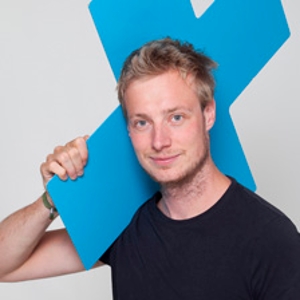 |
Njal van Woerden has been working at the Institute for Interdisciplinary Studies for many years as a lecturer in philosophy of science courses. In the field of interdisciplinary collaboration, he has translated Roosmarijn van Woerden’s work into an educational intervention to support collaboration in interdisciplinary project teams. |
How can assessment help students grow as whole individuals? In this interactive workshop, you’ll explore how authentic assessment connects academic learning with personal development and real-world challenges. Together, we’ll rethink how to design assignments that go beyond workplace skills to include social responsibility, moral awareness, and self-exploration. You’ll leave with concrete ideas for creating meaningful assessments that empower students to understand who they are and how they want to contribute to society.
By:
 |
Hannah Kousbroek (zij/haar) is toetsdeskundige en BKO-trainer bij TLC-Centraal en TLC Geesteswetenschappen. Ze is medevoorzitter van de Special Interest Group Toetsing en medeauteur van de TLC e-learning en webpagina’s over toetsing en coördineert de BKO+ Toetsing track (BKE). | |
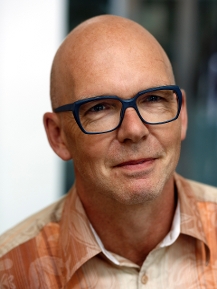 |
Cock Dieleman is a senior lecturer in theatre studies specialising in youth theatre and theatre education. |
How do we prepare students for an uncertain future? In this co-creative workshop, you’ll build a pedagogical compass that links future scenarios to the skills and attitudes students will need to thrive: critical thinking, empathy, and action. Using student personas and thematic reflection, you’ll discover how to integrate future-ready learning goals into your current curriculum. This session offers a practical way to shape education that is both meaningful and responsive to social change.
By:
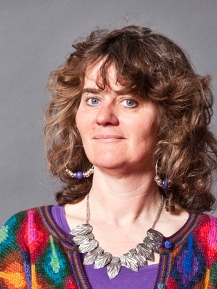 |
Michaela Hordijk is Programme Director of Interdisciplinary Social Science at the University of Amsterdam, a programme known for its innovative education. In 2020, she received a Comenius Fellowship, “Navigating an uncertain future: the Pedagogical Compass”, which forms the basis of this workshop. She leads this workshop together with Coyan Tromp, curriculum developer at the Institute for Interdisciplinary Studies (IIS) at the University of Amsterdam. | |
 |
Dr Coyan Tromp is curriculum developer and assistant professor at the Institute for Interdisciplinary Studies (IIS) of the UvA. Her focus is on sustainability issues. She experiments with innovative pedagogical concepts and the impact of Generative AI on academic education. |
What does higher education need to offer in today’s world? This interactive workshop explores how affective learning, focused on values, emotions, and motivation, can shape students into resilient and engaged professionals. We’ll introduce you to the Empowered Minds project and you’ll experience how to apply the Inner Development Goals in your own teaching, using hands-on tools from the Transition Makers Toolbox. You will discover how navigating a complex world requires not only cognitive abilities, but also affective skills, and you will be challenged to pay more attention to this in your daily work.
By:
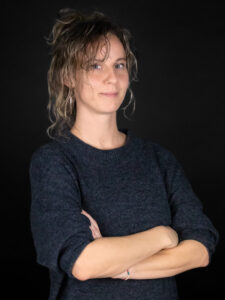 |
Brit Giesbertz is a didactical educator at the TLC Science, driven by a dedication to Inclusive Education. Within the Empowered Minds project, she supports programmes in implementing affective learning in the curriculum. | |
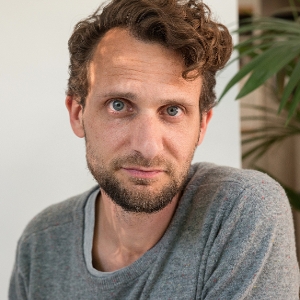 |
Jasper ter Schegget is an educational developer and teacher trainer (STQ) at the Institute for Interdisciplinary Studies. Within the Empowered Minds project, he supports programmes in implementing affective learning in the curriculum. |
What if you turned your research lens on your own teaching? In this workshop, you’ll discover the Scholarship of Teaching and Learning (SoTL) as a way to investigate and improve your educational practice. You’ll learn how to ask meaningful questions about your teaching, gather evidence from your classroom, and design small-scale inquiries that lead to real improvement. Through shared reflection on your teaching and by formulating a relevant research question, you will take your first step towards evidence-informed educational improvement.
By:
 |
Svenne Groeneweg focuses on the Scholarship of Teaching and Learning (SoTL), both in her PhD research and in her work at the TLC Central. This is a systematic approach for university teachers to reflect on and improve their teaching. |
Authentic professional growth starts with self-awareness. In this workshop, you’ll explore how to guide students in discovering their values, motivations, and behavior patterns. We’ll reflect on how daily moments in education, far beyond formal training, offer opportunities for deep, personal learning. You’ll work with tools to foster this development and reflect on your own role as a mentor. By recognising and encouraging authenticity, you help shape students who grow into self-aware, purpose-driven professionals.
By:
 |
Esther Reefman has built a versatile career, ranging from immunological research to roles as project leader, manager, and coach. Her greatest passion lies in guiding young adults in their development. She draws on her experience with self-awareness and interaction with others to strengthen higher education with a greater focus on personal growth and connectedness. |
How can we improve interaction in diverse classrooms and global teams? This workshop introduces Cultural Intelligence Theory and gives you tools to reflect on and practice your own intercultural competencies. Through hands-on exercises, you’ll explore how to prepare students for studying and working in multicultural contexts. You’ll experience activities you can apply in class and learn strategies to foster more inclusive, effective group dynamics crucial for global readiness in any field.
By:
 |
Heleen Straesser has been working in internationalisation at the UvA for almost 30 years and currently holds the position of Head of the International Office of the Faculty of Social and Behavioural Sciences. After having developed workshops for incoming exchange students and first year international students, she worked together with Guido de Wilde on the EU funded TICKET-project developing training modules for staff on intercultural competences. | |
 |
Drs Guido de Wilde has worked at the University of Amsterdam since 2006, where he leads global partnerships and engagement initiatives and designs programmes that foster intercultural competence, student leadership, and inclusive communities. Drawing on two decades of experience in international student affairs, he is passionate about equipping students and staff to thrive in multicultural teams. |
Generative AI (GenAI) is transforming how students learn and work. In this workshop, you’ll use a five-step model to assess the impact of GenAI on your curriculum and update learning goals accordingly. You’ll analyze which skills remain relevant, which need adjustment, and how to teach students to use AI responsibly. The structured approach helps you future-proof your teaching and align it with rapidly evolving technologies.
By:
 |
The Generative AI in education expertise group at the faculty of medicine investigates the opportunities, possibilities and challenges of GenAI and translates these into innovative projects. With a multidisciplinary team of lecturers, educationalists, researchers, ICTO staff and students, they work to enrich education and strengthen the connection with the future professional field. |
How can we better understand and improve education together? In this workshop, you will explore the new Research Priority Area (RPA) on higher education: an initiative focused on academic, evaluative, and policy-oriented research into teaching and learning. Together, we will identify the most meaningful research questions around themes such as student success, wellbeing, and equal opportunities. You will discover how students can be actively involved from the outset, and how to make optimal use of existing data and expertise within the UvA. Through open dialogue, we will lay the foundation for a team science approach in which lecturers, students, and policymakers jointly shape the future of educational research.
By:
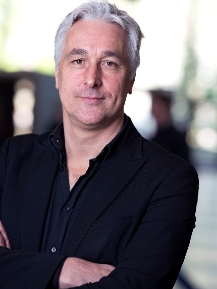 |
Ingmar Visser is associate professor in Developmental Psychology at the Psychology Research Institute. His research focuses on the psychometrics of learning and development. He is also programme director of the Bachelor’s in Psychology and chair of the University Committee on Education (UCO). He is one of the initiators of the Research Priority Area Building Interdisciplinary Team Science for Future-Proof Higher Education. | |
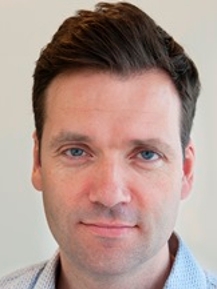 |
Niels Smits is associate professor at the Research Institute for Child Development and Education. His main expertise lies in applied statistics and psychometrics. He is one of the initiators of the Research Priority Area Building Interdisciplinary Team Science for Future-Proof Higher Education. | |
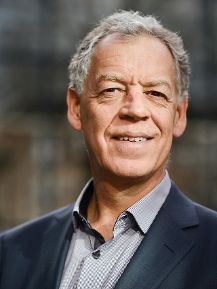 |
Peter van Baalen is full professor of Information Management and Digital Organisation at the Faculty of Economics and Business. His research focuses on the social, organisational, and strategic aspects of (interorganizational) information systems. His main areas of application are knowledge management, the New Way of Working, e-learning, and interorganisational information platforms. He is also director of the College of Economics and Business and one of the initiators of the Research Priority Area Building Interdisciplinary Team Science for Future-Proof Higher Education. |
About Mieke Lopes Cardozo
 |
Dr. Mieke Lopes Cardozo is Associate Professor in Regenerative Education and Development at the Amsterdam Institute of Social Science Research, and part of UvA’s Governance and Inclusive Development Research Group. She is co-founder and director of the School of Regenerative Educators, a training and research organisation for professional development of educators and education leaders. Mieke’s transdisciplinary teaching, supervision, research and writing focuses on the role of education systems in processes of regeneration, peacebuilding, social justice and inclusive development. |
She is chair of the Fair, Resilient and Inclusive Societies (FRIS) education innovation scholarship programme, based within UvA’s Teaching and Learning Centre and the Institute of Interdisciplinary Studies. She co-initiated HOT – Hoger Onderwijs in Transitie.
Mieke lives with much love in Amsterdam with her partner and is a mother of twins. She is a committed reiki practitioner and yoga teacher and incorporates all of her roles into her work.
About Koen Wessels
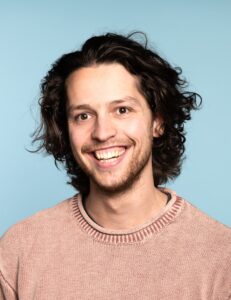 |
Dr Koen Wessels is an educator, facilitator, and action researcher specializing in regenerative education. He is the co-founder of the School of Regenerative Educators and works as a core lecturer in Change Making at the University of Amsterdam’s transdisciplinary bachelor’s program in Computational Social Science. |
The UvA Education Day is organised by TLC Central in collaboration with the TLC Network.
How do we stay connected in times of academic transitions, such as hybrid learning, AI and the international classroom?
Keynote: Connecting the Dots
 Jessica Taylor Piotrowski,
Jessica Taylor Piotrowski,
Professor Communication in the Digital Society
In today’s rapidly evolving academic world, success often hinges on our ability to connect the dots—integrating various relationships to support a thriving academic environment. This keynote will explore how the power of connection can be a game-changer for higher education.
We will examine how connecting the dots between faculty members can benefit education. The crucial partnerships between faculty and support staff will also be highlighted, showing how these relationships elevate education in powerful ways. Of course, at the heart of education is the interwoven connection between faculty, student, and course content. Here, we will discuss concrete strategies for cultivating this connection to best support engaged learning.
Join us, Tuesday 22 October, as we uncover strategies to connect the dots!
Programme
The UvA Education Day is a celebration of education. Together, we focus on the importance of teachers and the education they provide within the UvA. The programme of the upcoming UvA Education Day reflects current trends within the UvA. There will also be plenty of time for group sessions and unattached networking. During the sessions, you will explore a sub-theme in which you are interested together with colleagues.
The programme consists of:
- 11:30 Walk-in/brunch and meeting lecturers and colleagues from all faculties
- 12:15 Opening by Rector Magnificus Peter-Paul Verbeek and chair Dr. Toni Pape
- 13:00 Keynote Connecting the Dots by Prof. Jessica Piotrowksi
- 13:35 ceremony UvA Education Awards
- 14:00 Group sessions, with a choice of 10 diverse topics (90 minutes)
- 16:00 ceremony UvA Thesis Prize 2024
- 16:30 Closing & drinks
10 group sessions
Group session 1: Who is the self and who is the other?
Group session 2: Fair and inclusive assessment
Group session 3: Let us rally together! Activating change: transforming higher education to address societal challenges
(NL) Group session 4: Wie is… De Drog (in Dutch only)
Group session 5: Connected in independence – How to strengthen collaboration between students outside lectures
Group session 6: Inclusion and connectedness – Teaching and learning strategies to enhance inclusion and connectedness in the international classroom
Group session 7: Deep Democracy in the classroom
(NL) Group session 8: Panelgesprek UvA-scriptieprijs 2024, met Abdelkader Benali (in Dutch only)
Group session 9: Sensing the connection
Group session 10: The power of autonomy and connection in education
About the chair of the day
 Dr. Toni Pape is the chair of the day of the UvA Education Day 2024. He works as a researcher and teacher in Media studies at the University of Amsterdam. His research focuses on the aesthetics of contemporary television and video games. Toni teaches mainly in the Bachelor’s programme ‘Media and Culture’ and the Master’s programme ‘Television and Cross-media Culture’. He has also taught courses for the Netherlands Institute of Cultural Analysis. In 2019, his course ‘Introduction to Video Game Studies’ received the Humanities Faculty’s Teaching Award. In his courses, Toni likes to bring students together through blended learning, peer reviewing and research-creation workshops.
Dr. Toni Pape is the chair of the day of the UvA Education Day 2024. He works as a researcher and teacher in Media studies at the University of Amsterdam. His research focuses on the aesthetics of contemporary television and video games. Toni teaches mainly in the Bachelor’s programme ‘Media and Culture’ and the Master’s programme ‘Television and Cross-media Culture’. He has also taught courses for the Netherlands Institute of Cultural Analysis. In 2019, his course ‘Introduction to Video Game Studies’ received the Humanities Faculty’s Teaching Award. In his courses, Toni likes to bring students together through blended learning, peer reviewing and research-creation workshops.







